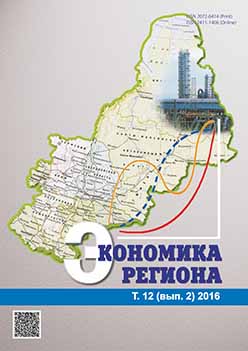Экономические мотивации выбора магистрантами образовательных, научных и профессиональных траекторий
Economic Motivations for Master’s Students’ Choice
of Educational, Scientific and Professional Trajectories
Author(s): Daniil Gennadyevich Sandler, Anastasia Dmitrievna SushchenkoSubject(s): Economy
Published by: Институт экономики Уральского отделения Российской академии наук
Keywords: higher education system; individual trajectories; educational trajectories; professional trajectories; scientific trajectories; motivation; master’s students’ expectations; student experience;
Summary/Abstract: The article examines the motivations for Master’s students’ choice of individual trajectories. In the course of their studies,the students’ trajectories have educational, scientific and professional aspects. Educational, scientific and professional students’trajectories determine a system of interaction between master’s students and other people in the context of educational process(teachers, other students) and beyond it (employers, research workers from Russian and foreign universities). The authorsemphasize the importance of studying the master’s students’ individual trajectories from both scientific (identifying thepeculiarities of students’ trajectories formation and development) and practical points of view (investments to master’s students toenhance the professional competence in the regional labour market). The authors have analysed the master’s students’ individualtrajectories on the basis of monitoring data obtained from the survey carried out in February and December 2014. The master’sstudents’ assessments allowed to identify what educational experience they were able to get during the education and whethertheir experience met their expectations. The master’s students’ economic expectations are examined during the implementationof educational and professional trajectories. The analysis of the results has shown that the biggest gap between the expectationsand the experience of the master’s students was found according to the criteria related to the student’s scientific trajectory andopportunities to participate in the internationalisation processes. The results of the research may be used to improve the master’sprogrammes taking into account the revealed master’s students’ expectations, as well as to ensure highly qualified professionalsin the labour market and for the effective investments to the human capital by the government authorities.
Journal: Экономика региона
- Issue Year: 12/2016
- Issue No: 2
- Page Range: 547-559
- Page Count: 13
- Language: Russian

